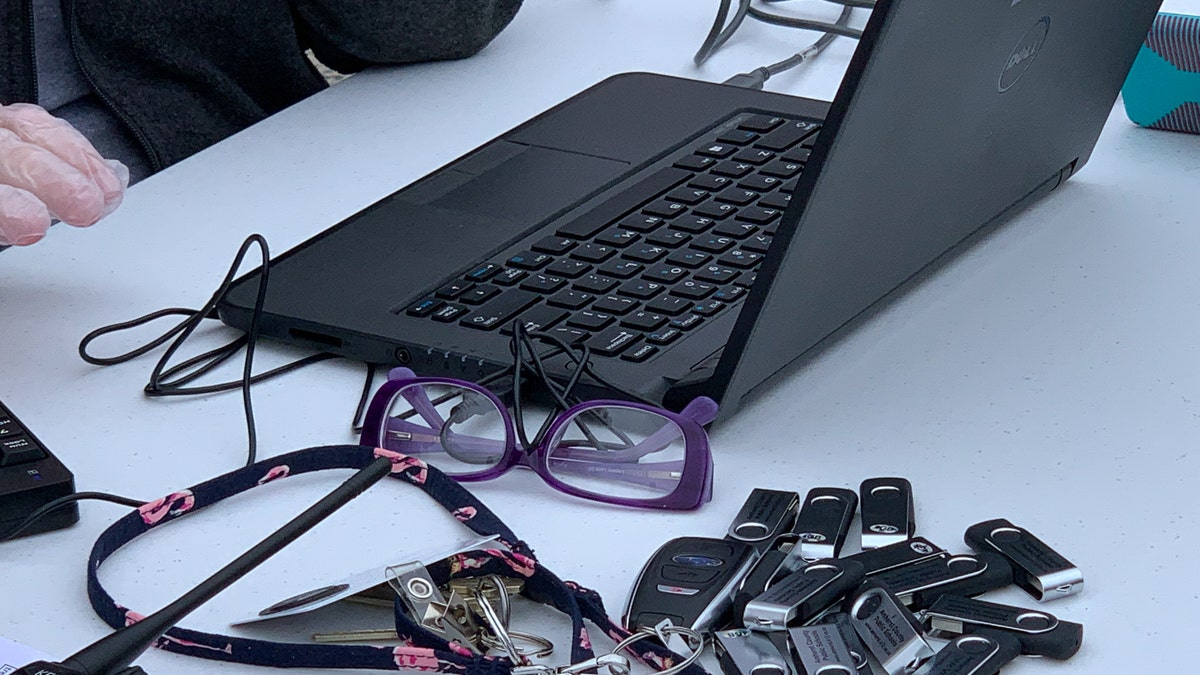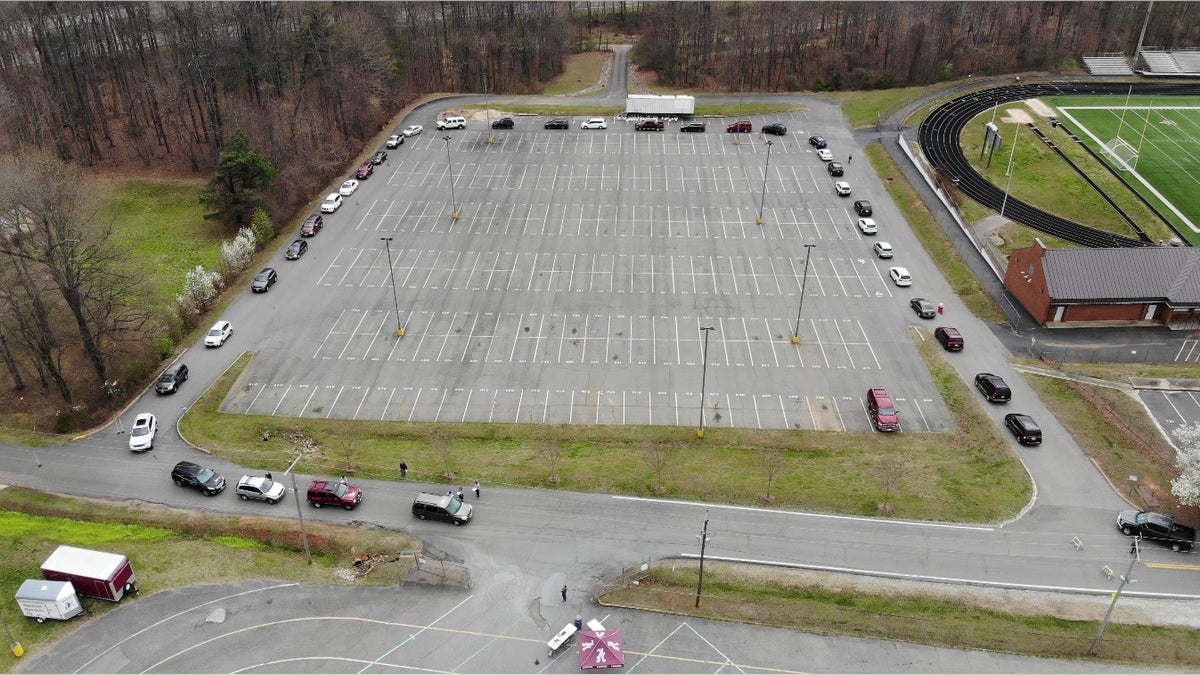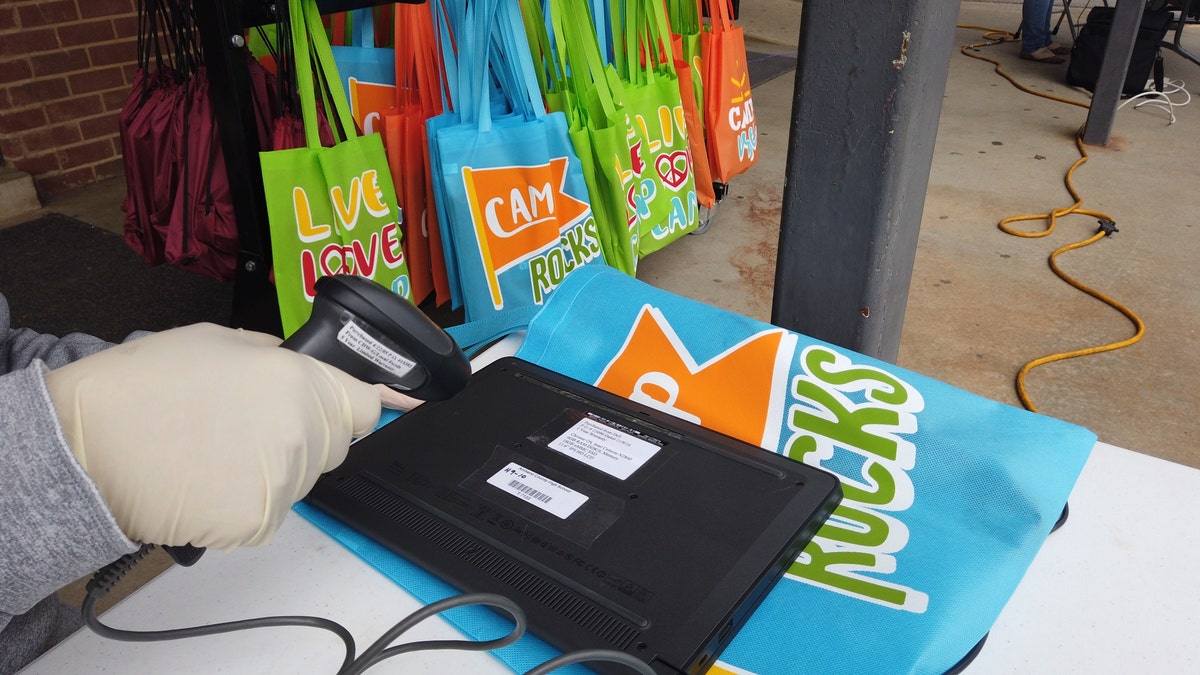Distancing learning poses challenges to rural communities amid coronavirus crisis
Not every child has access to a home computer or reliable internet service; insight from Dr. Rob Arnold, superintendent of Amherst County Public Schools in Virginia.
The rapid closure of more than 30,000 schools across the U.S. in response to the COVID-19 virus has left school officials scrambling to quickly move to online instructions -- but school districts in rural areas are facing their own challenges.
In remote areas of the country, where some students don't have computers or even Internet access, school officials are trying to figure out how to teach students trapped at home, with few resources.
FULL COVERAGE OF THE CORONAVIRUS OUTBREAK
“Our biggest problem is our Internet capability,” Amherst County Public Schools in Virginia Superintendent Rob Arnold told Fox News. “Most of our kids have the ability to get on the Internet but it’s through cell phone service and there are data caps. That becomes very problematic.”
High-speed Internet service is nonexistent for dozens of families living in Amherst County, a rural area in Virginia, which lies alongside the James River and the Blue Ridge Mountains. Also, some students do not own a computer to keep up with schoolwork at home, he said.
“We're just trying to provide a service. The school district is the heartbeat of the community. We feel a real responsibility to feed them and provide as many learning opportunities as we can.”
To assist more than 4,000 students, who are homebound for the next two weeks – or possibly the remainder of the school year – the school district is loaning each student, from third to 12th grade, a Google Chromebook or a flash drive with downloaded materials and assignments. Pre-k through kindergarten will receive printed worksheets.

Amherst County Schools in Virginia is loaning each student, from third to 12th grade, a Google Chromebook or a flash drive with downloaded learning materials and assignments so they can work offline. (Amherst Lancers Tech Club)
To prepare for schools to remain closed as the number of coronavirus cases rise, teachers and staff met Monday to design a curriculum on Google Classroom, a platform for teachers to distribute assignments and communicate with students, according to Kimberly Holbrook, whose five children attend public schools in the county.
“The principal at our elementary school videotaped himself reading a book...and posted online…so my two girls sat down in front of the TV and watched their principal read them a story last night,” said Holbrook.

On Monday, parents started lining up at a school in Amherst County, Virginia to pick up computers and other materials for their children to continue with the school curriculum from home. (Amherst Lancers Tech Club)
“It’s neat to see how people are using the technology we have and making those connections, so our kids don't feel so lost,” she said.
Students could pick up a Chromebook or flash drive at drive-thrus at specific schools until Friday.
Local families, like Holbrook’s, have been receptive to the school district’s emergency plan.
VERMONT COMMUNITY RAISES TIP FOR JANITORS WHO SANITIZED SCHOOLS AMID CORONAVIRUS FEARS
“We live in an area where the Internet is not available to everyone in the district, so the fact that they're sending out Chromebooks and flash drives to students who don’t have them is great,” she said.
On March 16, K-12 classes were shut down statewide in Virginia for a minimum of two weeks. Gov. Ralph Northam stressed the importance of keeping students' routines as undisrupted as possible.

A computer gets checked out for a student to use while home. (Amherst Lancers Tech Club)
“We will do everything possible to ensure that students who rely on school nutrition programs continue to have access to meals and that the disruption to academics is as minimal as possible” Northam said, according to a public statement released last Friday.
Amherst County schools also plan to push meal deliveries further into communities, reaching families who live deep in the mountains and other remote areas.
Through partnerships with churches, food banks and other organizations, the Amherst schools can distribute breakfast and lunch packages to families, regardless of the school system a child attends in the county, as long as they are under 18.
Arnold said public schools are the county’s largest employer.
“It's very important to keep our community stable economically by continuing to provide income,” he says.
The county is offering school bus drivers jobs delivering meals; they are compensated for such jobs, in addition to their contractual pay rate.
Starting Thursday, school buses will distribute food bags at various locations in the county including Scott Zion Baptist Church, Madison Heights Baptist Church, Tanglewood Mobile Home Park and Amherst County High School.
Jessica Ayres has been driving a school bus for Amherst County schools for six years. Working as a bus driver allows her to be home with her kids after school.
“I think it's an absolutely wonderful thing, what they're doing. I'm very glad that I can step in and be a part of helping the community out, honestly,” Ayres says.
A parent of five children, Ayres said at least half of the middle and high school students she drives every day come from low-income households who cannot afford reliable Internet service, including her own family.
“We’re going to be utilizing the Google Chromebooks that the school’s handing out, I think it’s amazing what the school is doing.”












































